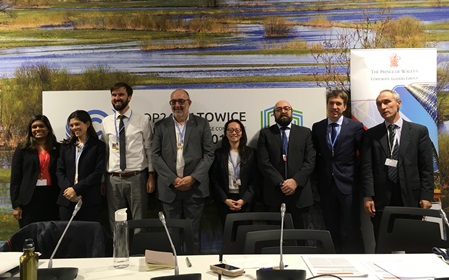
The 24th Conference of Parties (COP 24) was held in Katowice, Poland, last December where around 23,000 delegates met to negotiate and adopt the Paris Agreement Rulebook, which is the operating manual needed to implement the global deal in 2020.
What you need to know about COP24:
The most important outcome was the agreement of all countries, by consensus, on the rules for the implementation of the 2015 Paris Agreement. Rules mainly tackle how member nations will measure their carbon-emissions and report on their emissions-cutting efforts.
Parties also agreed to record the pledges in a public registry. Future pledges should cover a mutual time frame from 2031. The number of years for the time frame will be decided later.
Many difficult matters could not reach an agreement. Unfortunately, under the Talanoa dialogue parties failed to welcome the Intergovernmental Panel on Climate Change (IPCC) report on 1.5°C.
The Lebanese delegation at the COP actively participated in the climate negotiations, and in the Facilitative Sharing of Views (FSV) process following the submission of its second Biennial Update Report (BUR). Lebanon’s participation in the climate negotiations, as well as several side event panels relevant to its national climate work was very fruitful. Below is the list of events in which Lebanon had the chance to share their insight:
Facilitative Sharing of Views (FSV) for Lebanon’s Second Biennial Update Report (BUR):
Lebanon was among 6 countries to present the content of its second BUR, submitted in October 2017 to the UNFCCC, and answered questions from other Parties on its process and content.
Work of the CGE in support the preparation of the NCs and BURs:
The Consultative Group of Experts presented their achievements and lessons learned in assisting developing countries on measurement, reporting and verification.
Supporting Access to Green and Climate Finance in the South Mediterranean and the Western Balkans:
This event showcased the following:
- The latest climate finance initiative for the Western Balkan countries aiming to facilitate the development of a pipeline of green projects for the region;
- MENA countries’ climate challenges being addressed and ongoing needs;
- An overview of the common challenges in accessing green and climate finance and a forward-looking perspective on the biggest challenges and opportunities for green growth in years ahead;
Possibilities to address climate finance challenges in the region using innovative approaches to finance Climate Adaptation.
Financing low-carbon energy projects: the role of long-term policy, de-risking, PPPs and MDBs:
This event assembled multiple stakeholders to present the options for attracting private and public private partnership investment in low-carbon energy infrastructure to achieve the SDGs. They discussed the role of long-term policy strategies, de-risking, faster ‘greening’ of MDB portfolios, and the GCF.
Announcing the initiation of the Arab Climate Act Program:
The Arab Climate Act (ACA) is a platform catalyzing the climate change actions among the Arab Countries in an engaging multi-stakeholder approach contributing in a sustainable and profitable manner to a strong and effective response to climate change. The session included an introduction on the ACA objectives, interventions from successful businesses from different Arab Countries who have managed to create value and economic growth from implementing climate initiatives and from adopting smart climate change strategies. It ended with a Q&A session aiming to collect feedback and to address the potential activities.
Katowice has now become, after Kyoto and Paris, another milestone towards a sustainable global climate policy.